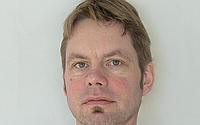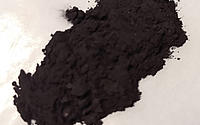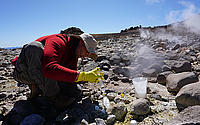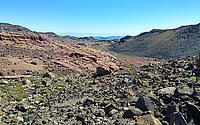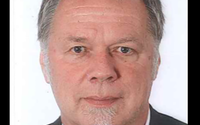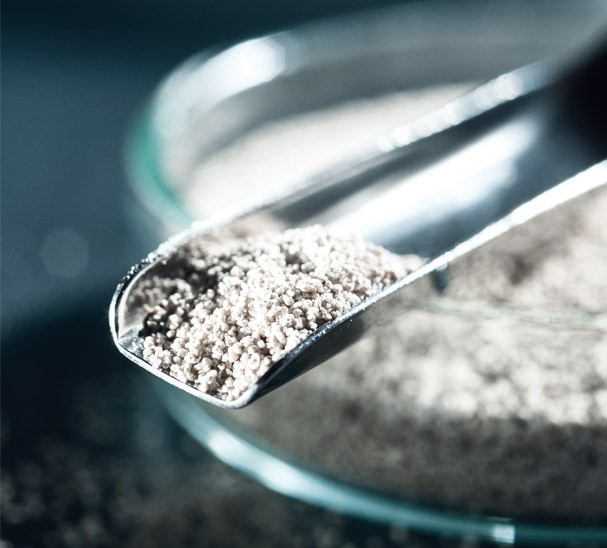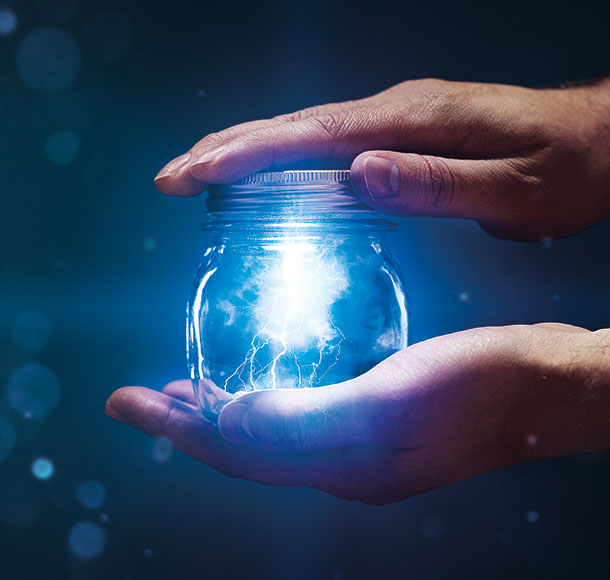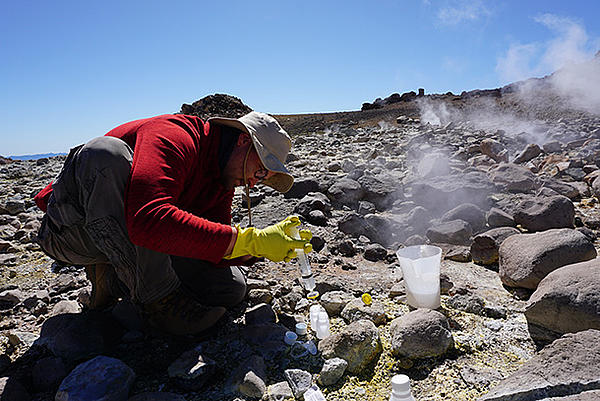
Double use: Geothermal sources as raw material and drinking water supplier
The numerous salt lakes of the Chilean Atacama Desert contain large lithium deposits. At the same time, due to its geology and geographical location on the western slope of the Andes, the country has one of the most extensive geothermal resources in the world, with well over 200 different volcanic systems. This results in a high potential for the use of geothermal reservoirs for power generation or heat utilization. However, Chile's geographic location also means that the north and especially the Atacama Desert are among the driest regions in the world. Natural freshwater resources are often scarce in these regions and can lead to water use conflicts between mining companies and small villages and indigenous peoples.
A research team led by Prof. Dr. Thomas Kohl, professor of geothermal energy at KIT's Institute of Applied Geosciences (AGW), is investigating geothermal brines in Chile in the BrineMine project together with German and Chilean partners. The aim is to use these brines by means of innovative technologies both as a source of energy and for fresh water production, thereby reducing the potential for conflict. "On the one hand, we are geochemically investigating the hydrothermal springs in northern Chile and the volcanic environment in the south of the country. The geothermal brines in these areas very often contain recoverable valuable materials such as lithium or magnesium. The goal is to develop a multi-stage process that can concentrate the brines to such an extent that minerals can be selectively separated and fresh water can be obtained," says Valentin Goldberg, a research associate in the team, describing the project. Geochemical as well as geophysical investigations have already been partially carried out. "Based on the findings of our investigations so far, we have developed a prototype that has been tested in Germany. In the next step, the plant is to be transported to Chile and put into operation there," says Prof. Kohl about the current status. On the one hand, the team wants to test the technical feasibility of the newly developed process, and on the other hand, it hopes to benefit international knowledge building by investigating the technical and economic conditions for using geothermal sources as a mineral supplier, thus demonstrating their potential as a complementary technology to conventional mining.

